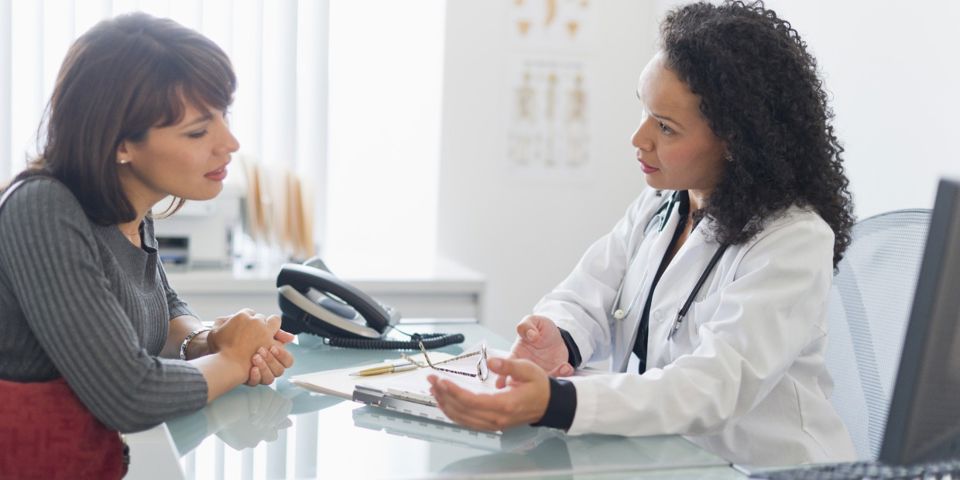You take care of yourself by exercising regularly, eating healthy foods and getting enough sleep. Is there anything more you can do? Absolutely! Have these health checks to make sure you detect any medical conditions early, before they become major health problems!
The 1Life Chief Medical Officer spoke to us about the health checks you should have and when.
Four essential health checks for all South Africans
Once a year visit your local pharmacy, GP, clinic or other healthcare provider to have these health metrics checked. Remember to keep a record, or make sure your healthcare provider has a record, so you can monitor any changes.
- Blood pressure
- Cholesterol
- Blood glucose
- BMI (Body Mass Index, which looks at your height and weight)
In addition, if you have diabetes or a family history of diabetes, you should consider an HbA1C test, which measures your blood glucose levels over time.
Top tip: Work out your BMI
Take your weight in kilograms and divide it by your height in metres squared, or use an online BMI calculator. A healthy BMI is between 18.5 and 24.9.
If you've got a question our client services consultants are here to help. Leave your details and we will call you back.
Don’t forget about your skin!
We get a lot of sun in South Africa. It’s wonderful, but the sun can damage skins very quickly, so get your skin checked skin for moles:
- Every three years if you are aged between 20 and 40 years
- Every year if you are older than 40 years
Health checks for women and for men
Gender specific cancers such as cervical cancer and prostate cancer are some of the most common cancers. Catch these and other gender-related health issues early and your chances of managing and treating them successfully increases.
Essential health checks for women
- Pap smear: Have this 2 years after becoming sexually active or from the age 21, every 18-24 months until age 65.
- Breast examination: Self-examine your breasts monthly.
- Mammogram: Have this annually if you are 40 years or older, or annually if you are over 30 years and have a family history of breast cancer. High risk females should have a mammogram annually. Check with your healthcare provider to confirm how often you should have a mammogram
- Bone density scan: Post-menopausal women should have this when they are 65 years or older and repeat the scan every 2 years if the initial scan scores are low. Your healthcare provider will analyse your scores and let you know if they are low.
Essential health checks for men
- Prostate: Have a prostate examination and prostate-specific antigen (PSA) blood test annually from age 45.
Protect yourself financially
Don’t be caught out by the expense of a serious illness! Consider taking dread disease cover to protect yourself financially. Dread disease cover will pay valid claims on diagnosis of a dread disease, such as cancer or heart disease, subject to the dread disease definition being met and any applicable exclusions. You can use the funds as and when you need them to pay for extensive treatment or supplement your income if you need time off work. Adding dread disease cover to your life cover gives you and your family added protection and can change your life for the better when you most need it!
Regular health checks for the over 45s
If you are over the age of 45, or have a family history of related health conditions or have had health issues yourself, have these health checks:
- Lab stool test for occult blood (blood that you cannot see with the naked eye), annually
- ECG test every 2 years to check your heart is in good condition
- Colonoscopy and gastroscopy every 2 to 5 years
Practice prevention
In addition to having regular health checks, our experts also suggest taking preventative measures such as vaccination to prevent serious illnesses and complications. Recommended vaccinations include:
- COVID-19
- Seasonal flu
- HPV (women only from age 12) to protect against human papilloma virus that can cause cervical cancer
Talk to your healthcare provider
Your healthcare provider, such as your GP, will help you manage your health. You can talk to them about any healthcare concern you have, including health checks. Depending on your age, family history and health they may suggest more comprehensive checks to ensure you are managing your health well.
Take care of yourself and your health
Checks, preventative screening and preventative measures can all help you detect illness early, and manage it well. In addition, detecting illnesses such as cancer early means you have a better chance of beating the illness! Best of all, they make sure you are in tip-top condition so you can spend more time with your family and loved ones!
We answer your questions
1. Why are regular health checks important?
Health checks are an important part of a healthy lifestyle, which might improve your risk profile and influence your life insurance premiums positively.
2. Do I need a medical exam to get life insurance with 1Life?
In majority of cases, 1Life offers life cover without further medical requirements from applicant, just an HIV test. However, we do require full medical and health disclosure during the underwriting process to assess your application accurately.
3. Which health indicators are most relevant when assessing your application?
At 1Life we do not require additional medical testing such as blood pressure, cholesterol, blood sugar levels etc. apart from an HIV test, but health indicators that play a role are your BMI, your medical history and general lifestyle indicators like smoking or alcohol use are commonly considered when assessing your life insurance application.
4. Can I still get life cover if a health check has revealed a condition like high blood pressure?
1Life considers each application on a case-by-case basis. You may still qualify for life insurance, though your premiums may be adjusted based on your risk profile.



